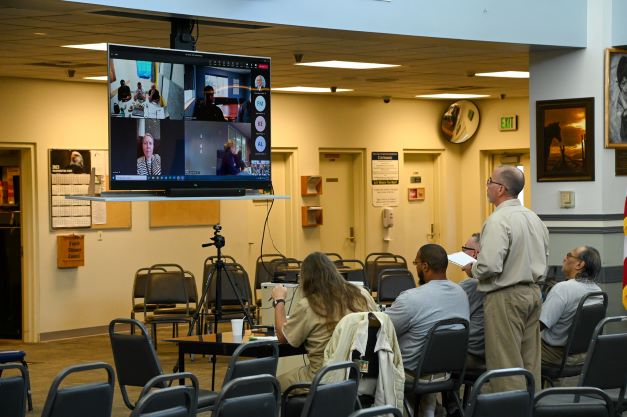The Washington State Department of Corrections' partnership with Amend is a crucial part of creating a more humane corrections system in Washington State. This partnership, now called the Washington Way, has produced new ideas and different approaches to situations that have shown their influence across the state. This influence has gone beyond just staff and has made an impact on incarcerated individuals as well.
Stafford Creek Correctional Center (SCCC), in collaboration with Amend, has launched Cell to Cell, a program that is setting a new precedent in rehabilitation and international cooperation thanks to the input and ideas of individuals at the facility. At the heart of this endeavor is the remarkable ability to bridge geographical and emotional divides. It brings together incarcerated individuals in Washington and Norway, encouraging them to engage in candid conversations on correctional and international culture that transcend the traditional boundaries of prison walls.
The idea stemmed from Richard, an incarcerated individual at SCCC. He expressed interest in visiting Norway, similar to the visits some facility staff have taken to better understand Amend and its principles. While that was not something that could be accomplished, the staff at SCCC, Amend and the Washington Way worked with him to create this opportunity based on Washington Way principles. This collaboration allows a group of individuals from SCCC to meet with a group of individuals from Romerike prison in Norway through a Microsoft Teams call that is facilitated by staff on both ends. The group at SCCC meets before each call to create an agenda for the meeting with the help of their staff sponsor. This relationship through technology allows for an unprecedented level of connection for those incarcerated.
“In the short time Norway has been an influence on us, you can feel the change on the units,” said Richard. “You can hear the difference in conversation between correctional officers and incarcerated individuals. While we're still figuring things out with the contact officer program you can feel the changes it is providing already.”
One impactful theme that emerged during the program's discussions was the comparison of two significant tragedies: the 9/11 attacks in the United States and the July 22 terrorist attack in Norway. In these conversations, individuals explored not just the immediate aftermath but also the long-lasting effects of these events, recognizing the enduring humanity that emerged from these tragedies. The shared experiences led to a deeper understanding of one another's cultures, with memorials in both countries proving to be surprisingly similar.
This prompted a discussion on mental health, as participants discussed the importance of addressing mental illness. One individual spoke of a man on his unit that was released from prison only to return shortly after and be as happy as ever.
“I think that's a great example of mental illness, truly enjoying and wanting to be back in prison,” said Paul, an incarcerated individual at SCCC.
The role of contact officers, who coach, mentor and provide support to individuals, became a focal point of discussion. While challenges were acknowledged, including the need for more time and a specific personality, a shift in perspective emerged.
“We don't usually trust officers, as incarcerated individuals, because of what our backgrounds are but if something bad happens to our family members, they are exactly who we would want to call,” said Jarrell, a formerly incarcerated individual at SCCC who was recently relocated to Olympia Reentry Center. “When it comes to contact officers, we are the ones who have to let go of what we might think about them because they are the ones to help us with our jobs and school. We have to change so that we can be helped by those around us.”
Guidance from the Norwegian counterparts emphasized the importance of keeping an open mind and allowing time for change to take root. The impact of the program is already tangible; individuals reported feeling a transformation within themselves and observed a positive shift in the atmosphere on the prison units. The program not only fosters personal growth but also strengthens the bonds between individuals and their correctional officers.
“If you don't want to change within yourself, then you might as well stay in prison because you're just going to come back,” said Joe, an incarcerated individual at SCCC. “You have to make the decision to change yourself. I ask myself everyday what I can do to make myself better, what I can learn today. Whether society sees it or not, I don't care because my family sees it and they're what truly matter to me.”
One unique aspect of "Cell to Cell" is that it empowers the individuals from SCCC to lead the conversations, as the Norwegians prefer a more passive role. The selection of individuals to participate in these discussions began informally but is now evolving into a structured application process as interest grows.
In a world where prison systems often isolate incarcerated individuals further from society, the "Cell to Cell" program is a beacon of hope, encouraging incarcerated individuals in two distant lands to share their experiences, grow together, and forge a path towards rehabilitation, understanding, and personal transformation. This extraordinary initiative is not just changing lives; it's reshaping the very essence of the corrections system.
The Cell to Cell initiative will be expanding to other facilities in the future, with plans at Washington Corrections Center for Women on the horizon.


